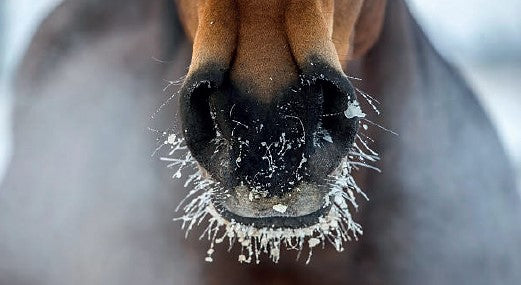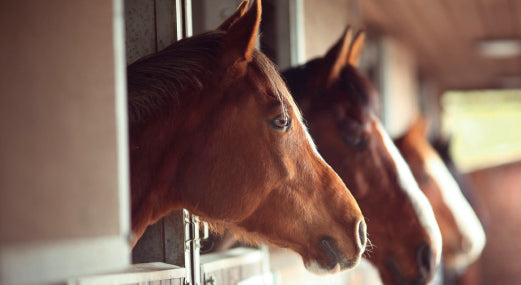Health & Nutrition
Would you like ice with that? Whole-body cryotherapy for horses!
The application of ice or snow or very cold water or packs containing cooling gels which have been cooled in freezers to relieve inflammation, pain and swelling is a commonly used first-aid technique for both people a...
Read More
Feeding chromium increases insulin sensitivity in horses
Insulin insensitivity or insulin resistance is a common feature of both equine Cushing’s disease (Pituitary pars intermedia dysfunction – PPID) and equine metabolic syndrome (EMS). Insulin insensitivity leads to a num...
Read More
Let’s Talk About Sex!
Preconceived versus Actual Behavioural Differences between Geldings and Mares
Horse trainers, owners and riders may have preconceived ideas about horse behaviour, temperament and rideability, based solely on the sex o...
Read More
Does Conditioning Equine Athletes on Water Treadmills Improve Fitness?
Equine water treadmills were initially designed for rehabilitation of musculoskeletal injuries but are now also widely used for conditioning sport horses. High-intensity exercise is important in improving fitness in h...
Read More
Could National Hunt Racing be made safer by Changing the Colours used to Mark the Fences?
Horseracing over jumps is a significant sport in the UK. But it also carries a high risk of injury. From 2013-2018 the death rate in National Hunt races, where horses jump fences ditches, was 1 in 250 starts! Most inj...
Read More
Safe & Legal Feeding
Many of you reading this will compete in affiliated competitions and will no doubt have an interest in nutrition and what is best to feed and supplement your horses.
With feed & supplements playing a vital role in...
Read More
Is Acute Colic Associated with Changes in the Equine Colonic Microbiome?
The horse’s hindgut (large colon) is populated with billions of micro-organisms that help digest the large quantities of cellulose (a type of complex carbohydrate) consumed in a forage-based diet. Horses cannot digest...
Read More
How likely is your horse to be injured during travelling in the UK and what can you do to reduce the risk?
Thousands of horses are transported by road in the UK every day, most of these according to a 2013 survey in single or double horse trailers (55%) and the remainder in small and large horseboxes (41%) although some ow...
Read More
Oxidative stress is evident in horses with equine gastric ulcer syndrome
Equine gastric ulcer syndrome (EGUS) is common in horses. Studies show that over 90% of horses in strenuous athletic work, such as racing Thoroughbreds and endurance horses have ulcers on gastroscopy (scoping the stom...
Read More
The Importance of Improved Airway Hygiene in Equine Asthma
Even mild equine asthma impairs oxygen uptake in the lungs and decreases athletic performance and in older horses and horses not in work can lead to loss of condition. Horses with asthma are frequently treated with st...
Read More
Do horses benefit from human demonstration on how to open a box to find food?
The behaviour of animals can be altered in various ways. Horses interact on an everyday basis with humans, and some studies suggest that horses can learn new behaviour from observing humans. A group of researchers fro...
Read More
New Research into Transporting Horses
Many horses travel by road on a frequent basis and probably 99% of journeys take place without incident. But when things do go wrong it can be serious. Problems range from injuries due to falling or getting trapped ov...
Read More













